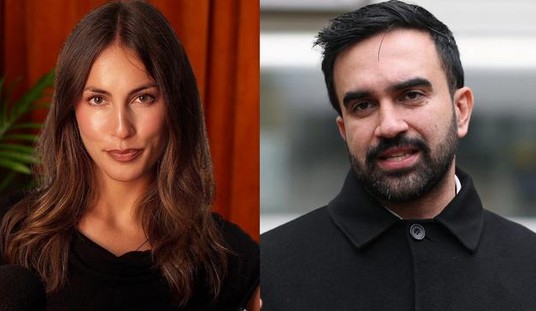President Obama touted his “Buffett Rule” again in a statement today. He took no questions, preferring to use the bully pulpit to lecture. The Buffett Rule would mandate that anyone making more than $1 million per year pay a minimum of 30% of their income to the federal government in taxes. The president denied that the “Buffett Rule” is about redistribution of wealth, even though it obviously is about redistribution of wealth. He stated that establishing the “Buffett Rule” would ensure that everyone is paying their “fair share” in taxes.
The president must have a skewed definition of what constitutes fairness and unfairness. The fact is, the top 10 percent of income earners pay more than their fair share of federal income taxes. Far more.
The top 1 percent of income earners paid 38 percent of all federal income taxes in 2008, while the bottom 50 percent paid only 3 percent. Forty-nine percent of U.S. households paid no federal income tax at all.
If the president’s interest truly lay in “fairness,” he would push for a tax hike on those not paying taxes at all. But he isn’t doing that.
The “Buffett Rule” idea has been around for years. It has never been about what’s best for the nation’s economy; the White House admitted as much this week. Democrats trotted it out back in 2007, including the anecdote that Buffett’s secretary pays a higher tax rate than he does.
Do the rich pay their fair share in taxes? This is likely to become a defining question during the U.S. presidential campaign.
At a recent fund-raiser for Hillary Clinton, the billionaire investor Warren Buffett said that rich guys like him were not paying enough.
Buffett asserted that his taxes last year equaled only 17.7 percent of his taxable income, compared with about 30 percent for his receptionist.
It seems to me, the sensible and pro-growth remedy for that would be to cut the secretary’s tax rate, not raise Buffett’s. Later in the same New York Times story on the subject, the paper of record admitted:
Recent calculations by the Congressional Budget Office of U.S. tax rates show a highly progressive system. (The numbers are based on 2004 data, but the tax code has not changed much since then.) The poorest fifth of the population, with average annual income of $15,400, pays only 4.5 percent of its income in federal taxes. The middle fifth, with income of $56,200, pays 13.9 percent. And the top fifth, with income of $207,200, pays 25.1 percent.
At the very top of the income distribution, the CBO reports even higher tax rates. The richest 1 percent has average income of $1,259,700 and forks over 31.1 percent of its income to the federal government.
One might wonder how Buffett gets away with a tax rate of only 17.7 percent, while a typical millionaire is paying so much more. Most likely, part of the answer is that Buffett’s income is made up largely of dividends and capital gains, which are taxed at only 15 percent. By contrast, many other top earners pay the maximum ordinary income tax rate of 35 percent on their salaries, bonuses and business income.
The president’s “Buffett Rule” gambit must be polling well, which doesn’t speak well of those being polled. It’s economic nonsense, it doesn’t stack up against even a very quick search of tax facts, and anyone who has paid much attention already knows that the president isn’t even pushing it as an effort to shore up the economy or reduce the deficit. He has been very clear and consistent that his economic policies are aimed at pursuing his peculiar notion “fairness,” and that their economic impact is secondary to that political goal. He cares much less about what happens to your job, than about what government is empowered to do to our job creators.
The “Buffett Rule” stands no chance of being passed. It wouldn’t even have passed when the Democrats controlled both Houses of Congress, a luxury that Obama had for his first two years in office, during which he and his party elected not to bring Buffett up. But introducing it now isn’t even about passing it. It’s about putting the Republicans on the defensive and setting up the optics of the GOP defending the “rich.” It’s cynical election year class warfare, nothing more and nothing less.









Join the conversation as a VIP Member